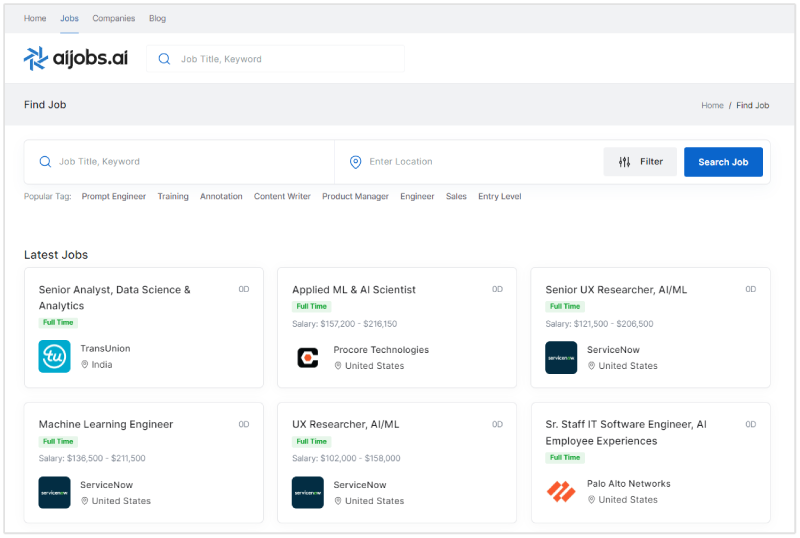What Does Integrity Mean to You? (Answer Examples)

“What Does Integrity Mean to You?”
This is a broader interview question a hiring manager might ask you. But it’s a simple way to see how you think on the spot and a glimpse into your character.
Integrity simply means having the quality of honesty and good morals. And throughout the interview, you should be displaying these traits. But if you do, it doesn’t mean you won’t be asked a question around this word either.
Below you’ll find a few answer examples to help you better define what integrity means to you. Additionally, I’ll share some mistakes to avoid in your response. Let’s jump right in!
Why Interviewers Ask About Integrity

An employer might ask you a variation of interview questions around integrity.
Some might just include the traditional, “What Does Integrity Mean to You?” But others may ask, “What does integrity mean to you in the workplace?” or other variations.
Either way, why do interviews ask this question? It’s usually for these common reasons:
- To connect on a personal level. The interviewer can learn about your beliefs, how you define it, and your overall ethics and morals. The way you answer can show a great deal about your professionalism and potential leadership qualities.
- To see if you match the company values. While companies want to hire trustworthy people, they also look for people that are closely aligned to their specific values. It makes for a stronger culture and business.
- To see how you handle work or conflicts. If the job is in a regulated industry or handling data, integrity will be critical. Additionally, your answer can allude to how you handle conflicts or disagreements in the workplace.
Tip: Are you utilizing LinkedIn in your job search? Here’s how to find remote jobs on LinkedIn and when to use the “Open to Work” feature.
Example Answers to “What Does Integrity Mean to You?”
To effectively answer what integrity means to you, it’s best to describe your view but also utilize past examples of you having that trait.
Remember, the recruiter or hiring manager wants to pick up on your morals and ethics here. So it needs to be clear that you truly believe in your answer. And you should, it’s easy to spy dishonestly if there is hesitation in your answer.
But also, keep these tips in mind:
- Research the company culture and values.
- Weave in some areas of the job description.
- Use examples from past work experiences.
Ready to impress your new potential employer? Here are four answer examples to help you practice and nail down your response.
Example Answer 1
In this first example answer, you can go a bit more broad with your response. But clearly call out why you view integrity in that particular way.
“For me, integrity means standing up for what’s right and sticking to my principles of honesty, being fair, and also being accountable even if it’s in an uncomfortable situation. My goal is to always be respectful, clear, and direct with my manager, team, or fellow co-workers. It’s important to communicate this clearly through my work or if mistakes were made.”
Example Answer 2
In this example, you can include something from the company culture and values. Most will have a careers page or webpage about themselves. You can find information that shows you did your homework.
“I always view integrity to mean maintaining honesty and strong ethics. It’s important to build that trust and camaraderie with fellow teammates so they can rely on me to do the right thing and be transparent. And one culture value I resonated with on the [Company Name] website is about being transparent during good and bad times. That’s where I see integrity being so important, as I want to maintain my values, even if challenges lie ahead.”
Example Answer 3
In a job description, you’ll see skills and relevant duties about the position. And here, you can use this information to showcase something relatable in your answer to the specifics of the job. In this example, I made up some additional scenario and reference at the end how it ties to the fake job I'm interviewing to get.
"I truly believe that integrity is a critical value to have both in personal and professional environments. It’s especially valuable in the workplace, since I operate in finances and had access to large budgets and accounts with personal banking details. For that job, I had to ensure that I handled information ethically and protected that information each day. And in this role I’d be managing an eight-figure budget, which was a similar amount to that previous position."
Example Answer 4
This example answer ties into a past work experience. I used a fictitious scenario, but you can see how this response would bode well.
“To me, integrity just means doing the right thing even if there is no one to witness it or would find out. And sticking by your ethical principles, even during tough situations. And since I have access to sensitive data and account information, I want to ensure I’m always professional in how I handle this information. For example, in my lost job I was responsible for maintaining data and security for thousands of individuals. Much of the data was highly sensitive and we had a security breach. None of the main data was accessed and we corrected the issue ASAP. But we still wanted to let customers know instead of hiding it, even if they had no clue. This ensured customers felt trust in our capabilities to stop the breach, but also being transparent as soon as it happened.”
Additional Tips to Answer the Integrity Interview Question
In your answer, you can think about what terms or themes to bake into it. Most interviewers will look for or will anticipate some variation of words or phrase like below. Remember, tie it back to previous work experiences or the current job description to drive maximum answer impact.
- Doing the right thing at all times.
- Always be truthful, even in tough situations.
- Being a role model for others in the workplace.
- Be respectful and fair to any co-workers or managers.
- Not hiding mistakes and taking accountability.
- Speaking up when something unethical is taking place.
- Continual transparency with teammates and customers.
What Should You Avoid Doing in Your Answer?
Now that you have some good examples of how to answer “What does integrity mean to you?” What should you avoid in your response?
- Making things up. Of course, you might get away with it. But then, you really aren't practicing integrity. Just be honest about a scenario and your thoughts to this question. And a great sign of integrity is owning up to challenges or mistakes in your interview answers.
- Avoiding a direct answer. This is why you should practice ahead when it comes to interviews! But if you just start mumbling words together, you look unprepared and that maybe you don't have much integrity at all.
- Bragging too much. While you want to give an example to correlate to your integrity, you also don't want to overdo it. Start off with your quick views one example or tie to the job, and done.
Be direct, show that you mean what you say, and provide an example of integrity related to work or personal experiences. You do those things, and you'll leave the interviewer with a great impression of you on this question.
Side note: Are you currently looking for a new job? Feel free to check out all of the open positions from some of the world's best companies on AI jobs.

Final Thoughts
If the interviewer asks you a question about your views on integrity or integrity in the workplace, you’ll want to have a solid answer.
The question may seem innocent, but can really help a hiring manager understand your character and fit to the company culture.
Make sure you are prepared and use the answer examples above to help you nail down your own solid response. And when you practice and deliver with confidence, you will leave the interviewer with a much stronger impression of you.
Other example answers for interview questions:








